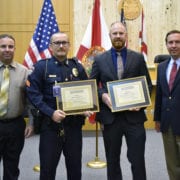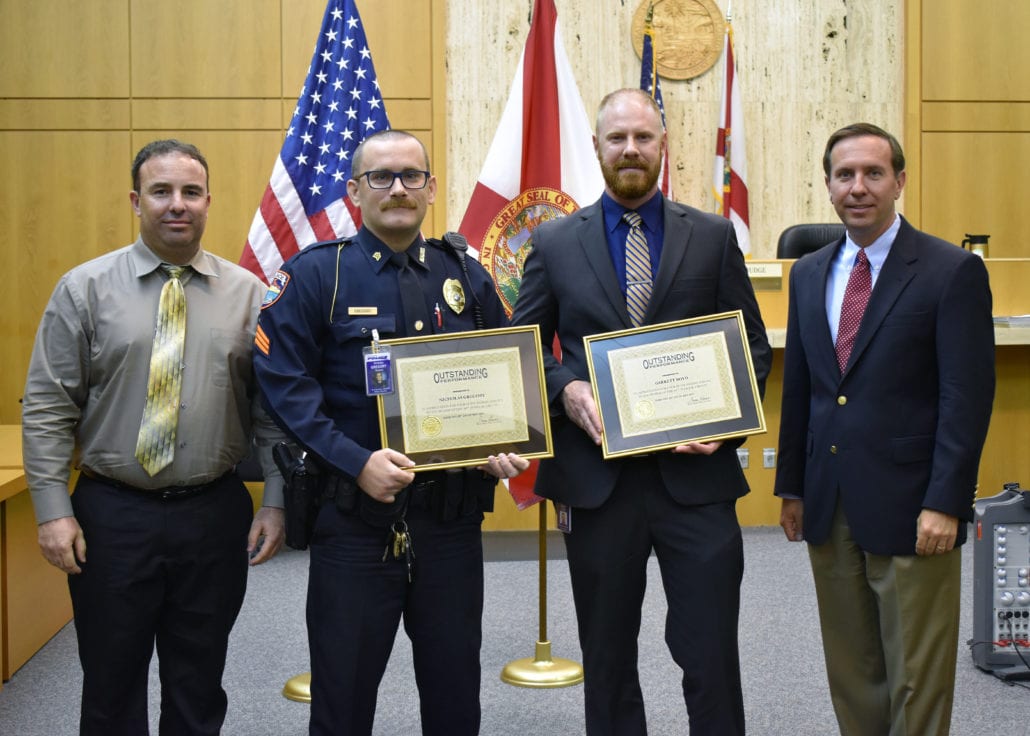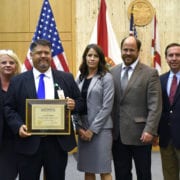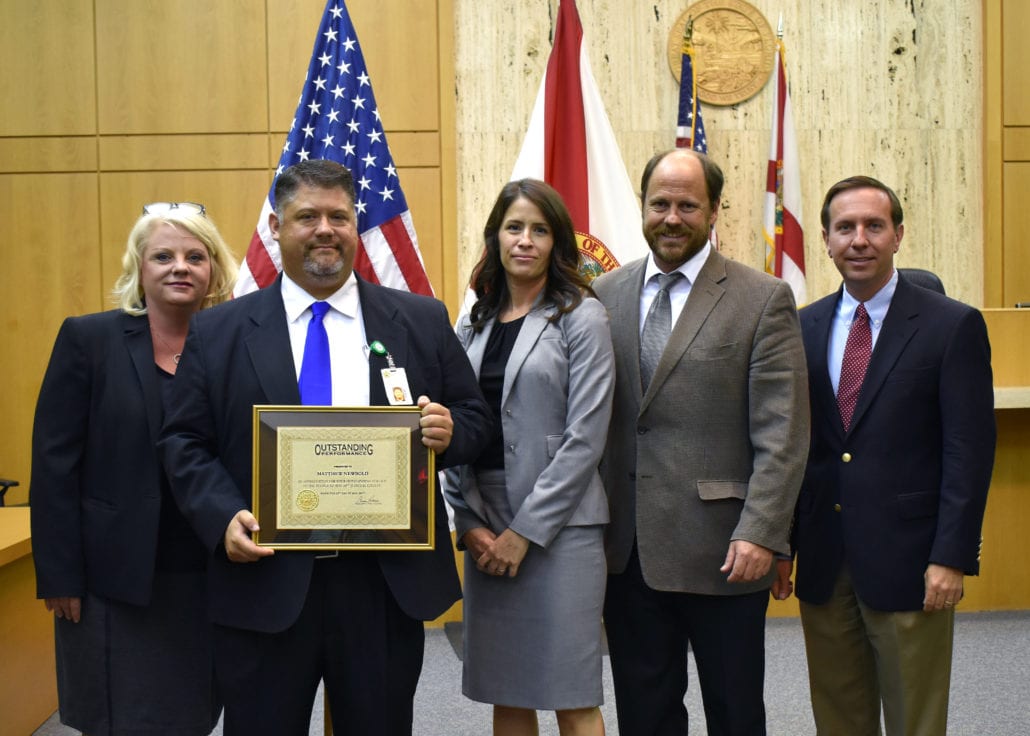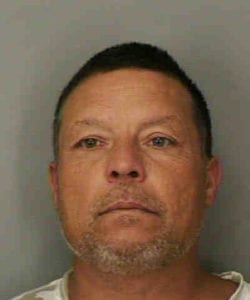Haas honors LPD Detective Paula Parker
State Attorney Brian Haas started a new tradition at the State Attorney’s Office yesterday. At our annual awards ceremony, some special law enforcement officers were recognized who – in the past year – have gone above and beyond the call of duty to serve our community.
“We are blessed in the tenth circuit to have many wonderful officers and deputies. Each day and night they put on their uniforms to protect us, not knowing if they’ll ever return home,” State Attorney Haas said. “They investigate cases and do not give up until every lead is pursued and every angle is worked.”
Lakeland Police Department Detective Paula Parker was honored for her work on the William McGee case.
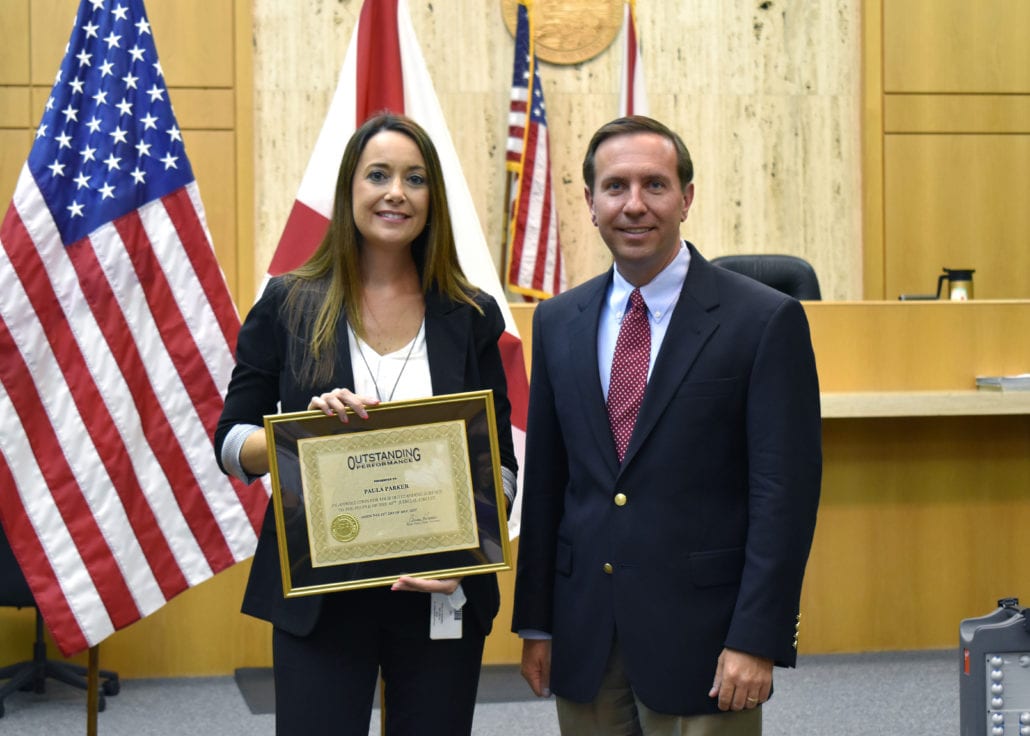
Lakeland Police Department Detective Paula Parker was honored for her work on the William McGee case. McGee attacked a runner on Lake Hollingsworth and attempted to rape her. He then fled the scene. McGee was found guilty of kidnapping and attempted sexual battery. He was sentenced to 30 years in prison.
William McGee admitted he could have raped his victim if she hadn’t talked him out of it.
The 22-year-old woman was running around Lake Hollingsworth about 11 p.m. May 18, 2015, when she saw the shadow of a man begin to approach her from behind.
The victim felt his arm slip around her neck and his hand cover her mouth, and that’s when she realized he wasn’t there to run the lake. He was there to hurt her.
McGee confined the victim for 49 minutes after pulling her off the running path.
“Why are you out here this late? You deserve this,” McGee yelled at her while forcing her into a wooded area and then to the ground, where he attempted to remove her shorts.
The victim fought to keep him off of her, pleading with him to not hurt her. When she realized she wasn’t strong enough to overpower him, she changed tactics and began to reason with him.
Once McGee realized she stopped fighting him, he stopped pulling at her shorts. He noticed her earbuds and yanked them from her to listen to her running music, which the victim used as another way to engage him and attempt to change his mind. The victim freed herself and McGee fled the scene.
The case was assigned to Lakeland Police Department Detective Paula Parker. Detective Parker immediately began pouring her efforts into solving the case and building sufficient evidence to support a conviction.
The DNA found on the victim’s earbuds would later match DNA taken from underneath her fingernails from fighting McGee. Both samples were a match for him.
Assistant State Attorney Jaenea Gorman, who tried the McGee case, said Detective Parker’s attitude, whole approach and persistence in pursuing who did this was what made the difference.
“It could have been months before a suspect was found,” “but Parker pursued it all with a sense of urgency that sets her apart and shows she goes above and beyond.”
Gorman said Parker had the right demeanor and approach to get him to voluntarily give the buccal swabs.
“She even drove some of the DNA to FDLE herself,” Gorman said. “It saved precious time. You don’t get that with everyone.”
Not only did Parker get a great statement from him, she got McGee to walk her down to the lake where the incident happened.
It was videoed, and Gorman said it was powerful evidence for the jury.
Parker built a rapport with McGee even though he knew she was investigating him.
“She continued to be passionate about the case and do what was needed all the way through to the end,” Gorman said.
McGee was found guilty of kidnapping and attempted sexual battery. He was sentenced to 30 years in prison.
Detective Paula Parker never stopped working on the case, her tenacity and dedication led to McGee’s conviction and took a dangerous rapist out of our community.
Haas said he knows from personal experiences he had prosecuting cases worked by Detective Parker, the McGee case is not the exception for Paula; instead, it’s what we’ve come to expect from her.



